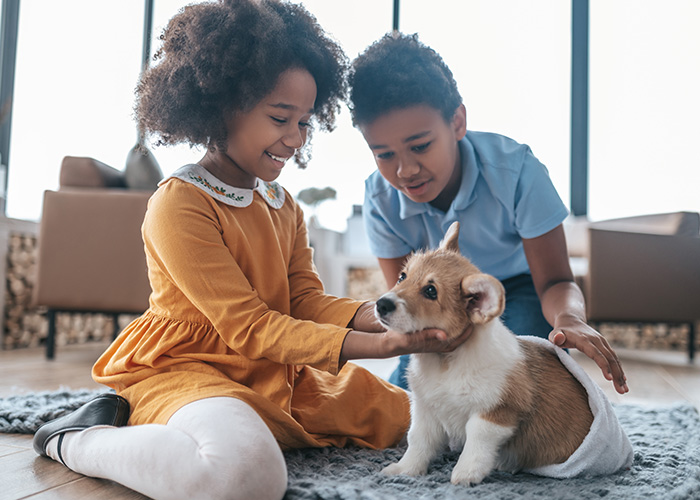New pet checklist. How to be a good human when it comes to animals.
“You become responsible, forever, for what you have tamed.”
The Little Prince, Antoine de Saint-Exupéry’
A new pet is a daunting prospect for many. How do you integrate it into your life, how do you take proper care and how do you ensure a long, healthy and happy life for whatever creature you now own?
First of all, decide today to step up.
Whether you have wanted this pet for a long time, waited and planned for it, or whether it came to you by chance, you need to decide if you are ready for the full commitment of being a pet-parent.
If not, reach out and re-home the animal before it bonds with you. (There is no shame in re-homing, but there is shame in neglecting an animal)
Next up, find resources and do research.
Find out what food your pet needs, what type of bedding, enrichment, or habitat. Next up, learn more about your animal. (Google will set you free.)
Does it need vaccinations, a specific grooming regime, or a regular supplement? (Some reptiles and small rodents need certain minerals and tonics for optimal health.)
A vet is your best bet.
You will have to find a good vet or make contact with animal welfare institutions that might have resources and programs to help with certain routine animal care procedures. Often times you can offer your time and services in lieu of payment for vaccinations or sterilizations, or you can set up some kind of payment plan to ensure that your animal gets the help it deserves.
Despite what you might think about the current state of the country, you should also find out from your municipal authorities about state vet vaccination and sterilization drives. Provincial branches of the state veterinary service usually run these every couple of months and you might have to wait a bit or jump through some hoops, but if it means your dog gets it’s rabies shot, it will be worth it.
Neuter or spay is the only way!
You have seen all the ads and public service announcements – animals that aren’t sterilized can reproduce at a prolific rate, leading to overpopulation and therefore neglect and abuse of the unwanted pups and kittens.
It’s not just bunnies that breed like…well bunnies.
Sterilizing your animal can also improve its health, normalize behaviour and help prevent certain types of cancer.
Form good bathroom habits from day 1.
Nobody likes a smelly house. Dogs, cats and other “free roaming” pets that have the run of the house can easily stink up your living space, one piddle-puddle at a time.
The easiest way to sort this out is to invest some time and form good habits for your new pet. The internet is full of how-to videos, tips and tricks, so you should be able to find one that suits you.
How to toilet train your new dog.
Train them well.
While your pet is still a baby it might not seem necessary to focus on obedience training that stretches beyond “sit”. But trust me on this, once the pooch is a 40kg juggernaut escapee crashing down the road as it tries to devour the little Ola ice-cream guy on his bicycle, you’ll be glad for your obedience training when you call them back with one whistle or word.
A well-trained pet is a happy pet. Obedience training and proper socialization ensures that your animal is self-assured and comfortable with authority. This will greatly improve its personality and can completely curtail any dangerous or aggressive behaviour.
Furthermore, if your pet is well behaved its simply more fun to interact with. It’s a positive feedback loop of good behaviour leading to positive reinforcement, leading to even better behaviour…you get the picture…
Unnecessary things you don’t HAVE to waste time on:
As much as pets are a commitment and you should be prepared to offer them the very best you can, there are certain things that social media and popular culture will tell you your pet needs, but we can confirm that it doesn’t.
Weekly grooming sessions. Unless you have a super fluffy animal and you live in a muddy blackjack infested field, an expensive professional grooming session each week is overkill. (Rather spend your money on pet health insurance.)
Gourmet pet food/raw food diets/fresh meat. Yes, this IS good for your animal, and if you can afford to feed them this kind of fare, by all means, do it. But that doesn’t mean feeding your animal a well-balanced and formulated dry food diet is neglectful. There are many locally produced brands with a really good protein content and all kinds of fortifications and essential fats. Do some research and get the best food you can afford.
Fancy accessories. Did you know that animals have fur and paws for a reason? Did you know that fur was specifically designed to keep your animal’s skin covered and your pet warm and happy (or cool, depending on the weather…) This means that your pet does not need that fancy designer vest or booties! A good, safe collar or harness that fits your animal and helps you guide it, is all you need. Just remember that animals still feel extreme weather so you should absolutely take extra care during heatwaves or cold snaps. But you don’t have to buy the Versace water bowl…



